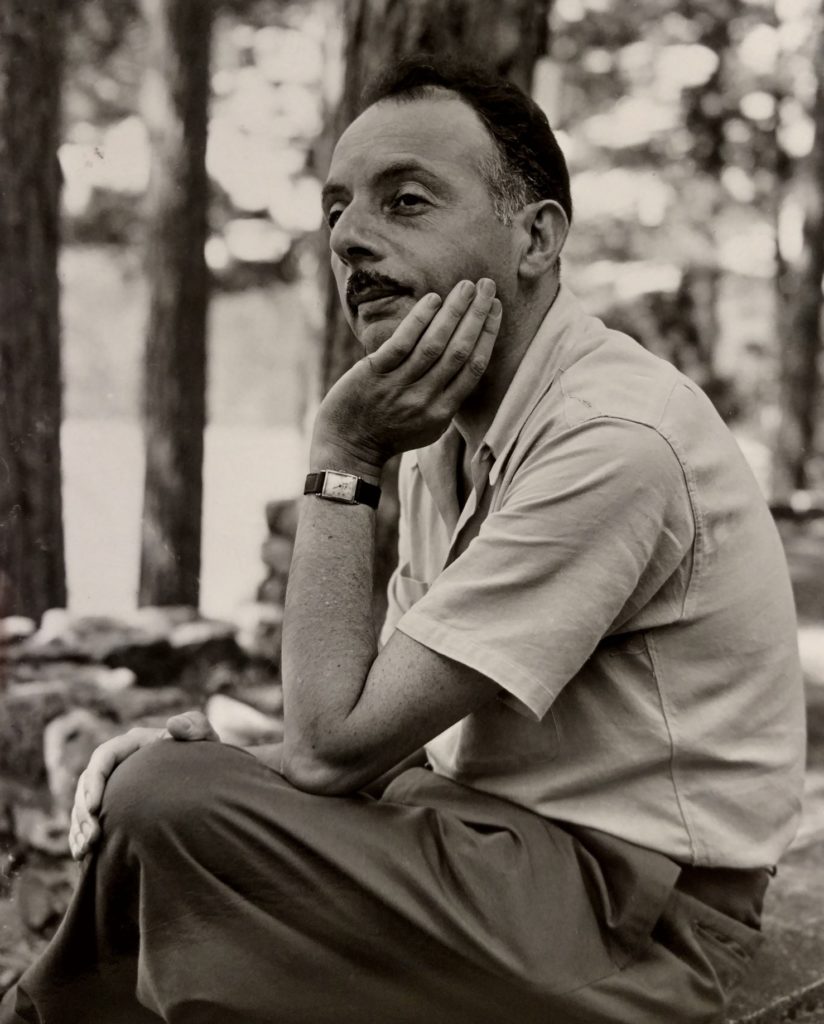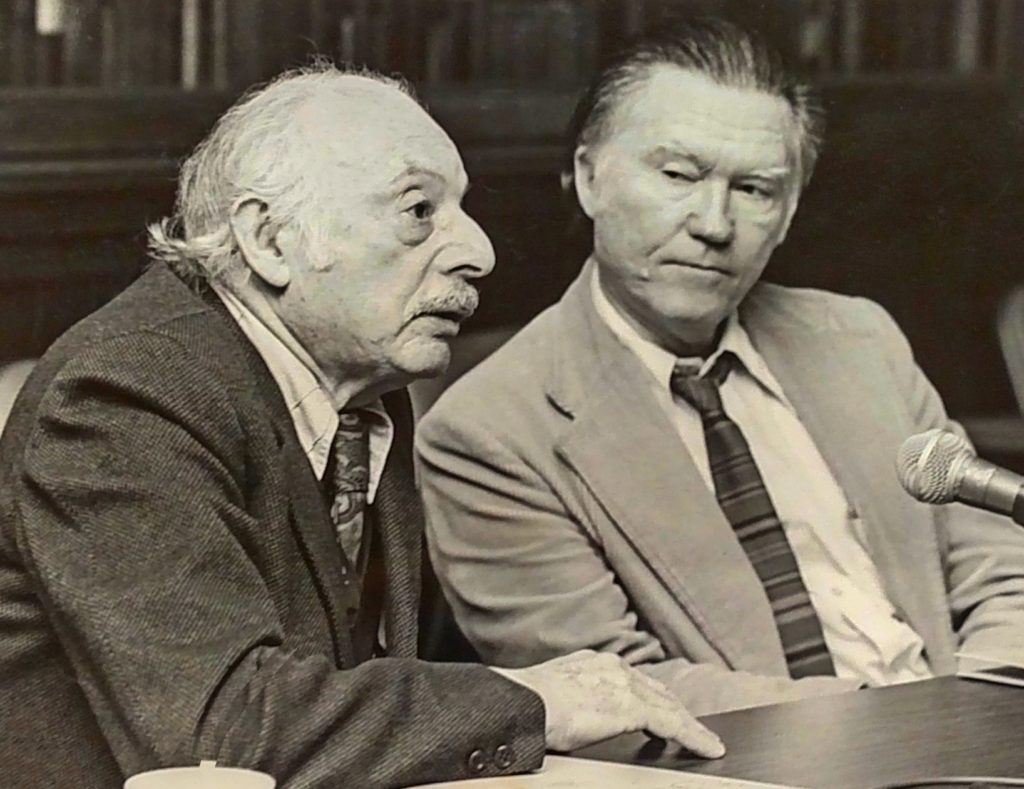Stanley Kunitz served as U.S. Poet Laureate twice, from 1974 – 1976, and again from 2000 – 2001. The following prose excerpts were taken from a public lecture Kunitz gave on October 7, 1974 in the Coolidge Auditorium at the Library of Congress. Many of these prose works would later be published in his volume A Kind of Order, A Kind of Folly: Essays and Conversations (Atlantic Little Brown, 1975).

Undated photograph of Stanley Kunitz from the 1950s. Kunitz is one of handful of poets to have held the position under the name Consultant in Poetry and Poet Laureate.
Maybe there are some books one writes to survive. Maybe there are others you write to endure. That’s a little distinction.
Actually, I’ve been working in the last year or so on a book of prose. It’s a collection of essays and conversations, journals, memoirs, I call it A Kind of Order, A Kind of Folly. That’s what I think poetry is pretty much about. Let me say that I think that the poet’s prose is not to be separated – that is when he’s writing as a poet – from his poetry, from his verse. It’s the product of the same imagination. And in fact, I would say that a poet walks more naked in his prose. He is cut off from his cover, of the persona of his poetry and the whole world of metaphor, parabolic writing, which is characteristic of poetry. So that he looks at his prose with no little degree of trepidation. It’s more of an exposure, perhaps, then he’s accustomed to. I’ll risk that.
“Do you think I have talent?” “Yes.” “So you really think I’ll be a poet?” “It doesn’t follow as the night the day. Talent is cheap, you know. One of the attractive features of mediocrity is that you can count on it – mediocrity infallibly begets the mediocre. But you can never be sure what the gifted will do. So many of them go straight to hell. Talent without character is the worst kind of curse.
Self-indulgence, automatism, is an escape from the risk of art. The poem does not lie easy in the mind for the picking. It must be fought for intimately through long days and nights. The actual process of composition is a solitary journey to the other side of fatigue and consciousness. There will be no poems if poets do not have boldness, compulsions, cunning, science and luck.
Poets don’t live, they get by.
The mind of the scientist, exploring space and matter, is closely related to the mind of the poet, whose task is to explore inner space and the reality of things. Like the scientist the poet is enchanted with an expanding universe of knowledge; but he keeps insisting that the new data must be incorporated into a moral universe, the universe that poetry originally created as myth and for which she must perpetually seek new metaphors. “After such knowledge what forgiveness?” asked T.S. Elliot. Ideally the mind of the poet is pulled two ways at once: on the one hand, to the purity of the precision of mathematics; on the other, to the purity of the violence of love.
Question. How do publishers feel about accepting a book of verse by a new poet?
Answer: Frankly, they feel sick at the thought. [Laughter] Some of the most successful trade publishers have not even considered it scandalous to admit they are disinclined to read any manuscripts of verse submitted to them. When will the publishing fraternity realize that poetry is the source, the seminal impulse, of all of our literature, the circumfluent air that gives all the arts of an epoch their weather? I have no patience with the Midas-fingered who complain that poetry resists being turned into gold. It is better than gold.

Stanley Kunitz (l.) with William Stafford. Photo courtesy of the Library of Congress.
Stanley Kunitz (July 29, 1905 - May 14, 2006) served as U.S. Poet Laureate twice, from 1974 to 1976, and from 2000 to 2001. He was also New York State Poet Laureate from 1987 to 1989. Other honors include: a National Book Award for Poetry, the Bollingen Prize for lifetime achievement in poetry, and the Robert Frost Medal. Kunitz founded the Fine Arts Work Center in Provincetown, MA and Poets House in NY. His books of poems include Passing Through (1995), Next-to-Last Things (1985), The Testing Tree (1971), and Passport to War (1944). His prose includes The Wild Braid (2005). Kunitz was editor of the Wilson Library Bulletin from 1928 to 1943. He taught at numerous colleges, including Bennington College, SUNY Potsdam, the New School for Social Research, Columbia University, and numerous short-term visiting poet appointments at such colleges as Brandeis University, Yale University, Princeton University, and Vassar College.